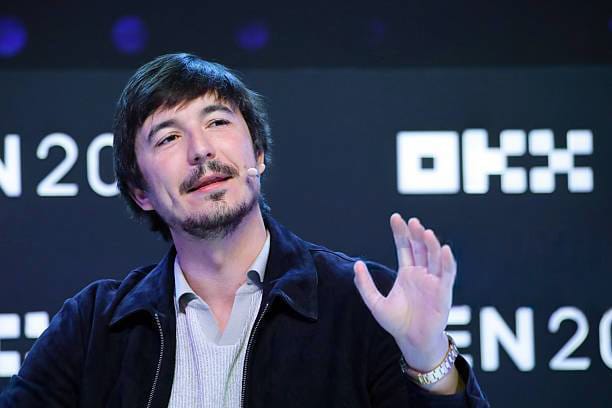Robinhood CEO Envisions Tokenization Reshaping Global Finance

Vlad Tenev, CEO of Robinhood, shared bold insights on the future of asset tokenization during a discussion at the Token2049 conference in Singapore. Speaking on Thursday, he predicted that most major markets could develop frameworks for tokenization within the next five years. Tenev described the trend as unstoppable, likening it to a freight train that will gradually integrate with the entire financial system.
He projected a longer timeline for widespread global adoption, estimating it could take a decade or more for nearly every region to fully embrace tokenized assets. Tenev highlighted the United States as potentially lagging behind other areas due to its robust existing financial infrastructure. This setup, while effective, creates little urgency for rapid change, much like how reliable medium-speed trains in the U.S. reduce the appeal of investing in Japan’s high-speed alternatives.
Stay In The Loop and Never Miss Important Crypto News
Sign up and be the first to know when we publishChallenges and Opportunities in U.S. Adoption
Tenev explained that the U.S. financial system already serves most needs adequately, diminishing the drive for tokenization. He noted that while tokenized stocks may not yet be widely available, platforms like Robinhood have successfully democratized access to traditional equities for everyday investors. This incremental approach means that speeding up to two hours from three might not justify the effort, but tokenization promises efficiency gains over time.
Stablecoins represent the simplest entry point into this tokenized world, according to Tenev. These dollar-pegged digital assets are building momentum in the U.S. by bolstering the currency’s international influence. He anticipates a similar path for other assets, such as stocks and real estate, where tokenization could become the standard method for foreign investors to access U.S. markets.
The convergence of cryptocurrency and traditional finance stands out as a key theme in Tenev’s remarks. He argued that these sectors have operated in parallel for years, but technological advantages in crypto will erase those boundaries. In the years ahead, distinctions between the two will fade as integrated systems take hold.
Robinhood’s expansion into prediction markets underscores this blending of innovation and established finance. The platform launched its event contract offering in late 2024 and has since seen over four billion contracts traded. Interest surged during the recent U.S. election, but Tenev emphasized that the appeal extends far beyond politics.
Sports outcomes have emerged as a major draw, with American and college football leading the pack in user engagement. Cultural events and advancements in artificial intelligence are also spawning active markets. This diversity shows prediction markets evolving into a versatile tool for gauging public sentiment on various topics.
Critics often compare these markets to gambling due to their speculative elements, a view Tenev addressed directly. He pointed out parallels with sports betting and active stock trading, where exchange-traded products thrive amid similar debates. Yet many users turn to prediction markets for informational value rather than profit, akin to consulting traditional news sources for real-time updates.
Tenev views such pushback as a common hurdle for emerging technologies. As adoption grows, these markets could refine their role in providing transparent, crowd-sourced insights. Robinhood’s early success suggests they hold potential to complement broader financial tools.
Overall, Tenev’s comments at Token2049 paint a picture of steady transformation driven by tokenization and related innovations. The freight train metaphor captures the inevitability, even if the U.S. journey includes some detours. For global markets, the next five years could mark the start of a tokenized era that redefines asset ownership and trading.

